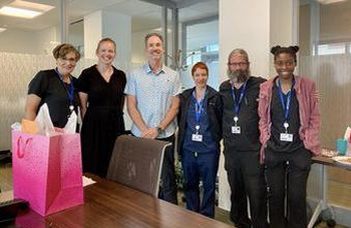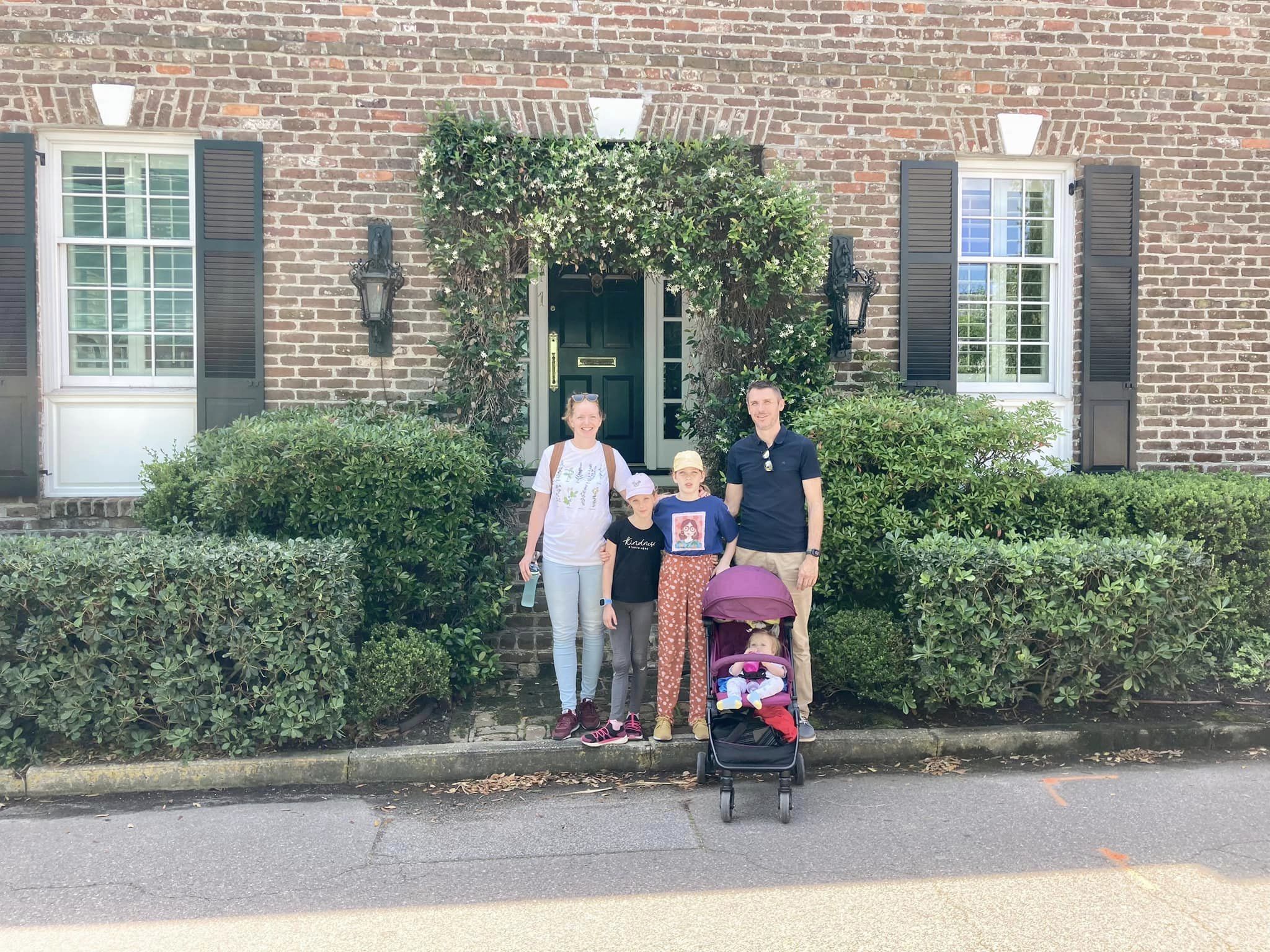The american mentor system can be implemented on a smaller scale at home

What did your research cover exactly? What were you engaged in at the University of Florida?
The objective of my research was to familiarise myself with a mentoring network in depth that is more extended than the European or Hungarian systems. The University of Florida was particularly suitable for studying this because the management of the university not only regards this initiative as a mission but also allocates financial resources to the networks. During the four months I spent there, I gained some insight into how young researchers can be supported well and how they can be retained at the university and helped to pursue a research career, or – when needed – guided in other directions through mentoring processes.
To this end, I conducted numerous interviews with both mentors and mentees, and I also had the opportunity to consult the leaders of the mentoring networks. The university has a variety of such networks and not only leaders of research groups or thesis supervisors can be mentors, but the alumni of the university can also give guidance to students. Furthermore, the mentor system is channelled into a training process, as well. Thus, I could also talk to people who were qualified mentors or whose training was still in progress. My goal was to explore what features or factors contributed to the sustainability of a mentoring network in the long run.
Based on your research, what are the main differences between the two systems, and what do you think could be adapted from what you have experienced abroad?
The data analysis has not finished yet, but preliminarily I would say that the values underlying the mentoring are the same both there and at home. The difference lies in the scale. In other words, our task in Hungary is to try and implement on a very small scale the processes involved in helping students to embark on their research careers, which may be supported through a connection with the supervisors. Some internal factors may contribute to its maintenance, including time allocated for research, financial support for the completion of certain processes, the training of mentors, and the preparation of mentees. The external factor is that, both in and outside the university management, there should be supporters and market players who can assist the functioning of these networks in the long term, as well.
It can already be seen quite clearly – and this is also an important finding for the American partner – that mentoring has a very important spill-over effect: the helping work and personality of the former mentees as researchers and teachers are considerably influenced by the way they used to be supported during their studies.

What was your reception like on the part of the university? To what extent did you feel yourself the helpful attitude?
In the case of the Fulbright Visiting Scholar Fellowship, it is a fundamental requirement that the applicant has a preliminary research plan and an invitation letter from the host institution, so I was already awaited by a colleague who was a kind of mentor in reality. This person primarily helped me to adapt my plans to the local context and connected me with the right people.
It is particularly interesting that, although I am a researcher working in academia, I went to a clinical research institute, where I was surrounded by doctors, pain researchers, and dentists. As a result, I learnt a lot about how daily work is carried out in the clinical environment, which – as it has been known for a long time – is the basis for the whole mentoring system in higher education, and they take the support of students extremely seriously. My research group belonged to the Clinic of Dental and Oral Surgery (Pain Research and Intervention Center of Excellence). This research area was very far from mine in terms of discipline. However, the mentoring relationships I am interested in work very well there. In addition, since my host also conducts training for mentors, I also gained the opportunity to talk to a herpetologist, a museologist, and a generation researcher. Fortunately, they were completely open to my work.
You were accompanied by your family, including your three little girls. How did you manage to reconcile parenthood with work?
After the evaluation of my application, it turned out that our family was growing. The Fulbright Committee was very flexible in this matter and allowed me to postpone my trip. In the end, we travelled to Florida with a 10-year-old, a 7-year-old, and a barely six-month-old child. My husband continued his work from home office, which meant that he worked according to the Hungarian time zone, that is, at dawn. In this period, I was with the baby and took my older daughters to school, and then we took turns. I went to the university at around 12.30, which was not customary at all there, but my colleagues were very appreciative in this respect, too. I strived to go to the university every day because the surroundings were truly inspiring, and I also tried to record most of the data in person. I was given a small office area to work there and I moved around a lot within the campus.
Did you have time to travel? What could you visit?
We set out on a tour in Florida almost every weekend. Among other things, we travelled to Orlando for an NBA game, went to Disney World, swam with manatees, and also visited the Kennedy Space Centre along with numerous other places. I also ran a blog, where we uploaded a lot of photos during our stay.
In addition, we went on two major professional trips. I visited Embry-Riddle Aeronautical University in Daytona Beach as a guest speaker, which was also a special experience because, although it specialises in aviation and space research, it has a centre specifically dedicated to the further training of teachers. It was very inspiring to see how interested the aeronautics and space scientists were in the topic and my research. Furthermore, I paid a visit to Campbell University in North Carolina, which trip was organised by a colleague who had already held a Fulbright fellowship before and gave a lecture at the ELTE Faculty of Education and Psychology in 2022. This also demonstrates that the Fulbright community is just like a family.

How much of a culture shock did you experience when you returned home? What differences can you see between American and home university life?
Returning home was more of a shock for me than for my family. This does not mean that there are no problems and everything is perfect there. However, I did not need to get involved in the random, daily administrative tasks abroad. I could only concentrate on my research. Of course, the landscape and the weather are all very positive, even if Gainesville is not located by the ocean.
In general, it can be said that when you return home, you are faced with a lack of money or infrastructure. Additionally, the way teachers are treated and appreciated abroad is also very different. For example, at the university, the teachers work in a team, where everyone has their own responsibilities: some of them teach, while others tutor students, and there are also those who compile or correct the tests. Everyone does exactly what they are good at and what is necessary for them at the given stage of their careers.
What are your further plans? Can we expect that a similar mentoring system will be developed at ELTE? There was already an initiative at this when distance teaching was introduced.
Thanks to a grant that I received from the Hungarian Academy of Sciences, I am able to finish my research. In February, I will be returning to Florida for a week or two to attend the conference of the International Mentoring Association (IMA), where we will be presenting the research results to the local academic community. My time abroad, therefore, has a continuation both professionally and in terms of networking. For example, the IMA – of which I had been a member even earlier – entrusted me with the management of the evaluation processes of the abstracts submitted to the conference.
As far as domestic adaptation is concerned, my primary goal is to transfer the knowledge gained abroad to my home university. It is no secret that I won the fellowship on this condition. This is also supported by the fact that we won funding from the Centre for Digital Education Development Competence to develop a mentor development program, and I am also constantly engaged in international research projects. I am currently on maternity leave, but as soon as I return to my work, I will ensure to get these processes started.
The cover photo shows Kinga Káplár-Kodácsy (second from the left) among her colleagues from Florida.

